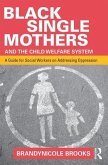This book explores welfare politics, unemployment, and interventions in relation to the labour market from a critical psychological perspective. Using critical fieldwork and theory, the author explores the administration of the unemployed, and the drive to increase labour market participation through strategies of activation. There is a strong and coherent conceptual and theoretical framing for this work, with a critical perspective (essentially, question everything) taking centre stage. It will give an overall coherence in addressing the topic. The theoretical framing is cogent and, in combination with the critical perspective, works well for integrating the material and delivering a fresh approach to this topic. Psychology, Punitive Activation and Welfare will appeal to students engaging with critical psychology, unemployment or policy, by providing a distinct application of theoretical and methodological tools to think differently about the relationship between labour market non/participation, human misery, psychology, and frontline enactment of policy and research.
Hinweis: Dieser Artikel kann nur an eine deutsche Lieferadresse ausgeliefert werden.
Hinweis: Dieser Artikel kann nur an eine deutsche Lieferadresse ausgeliefert werden.








